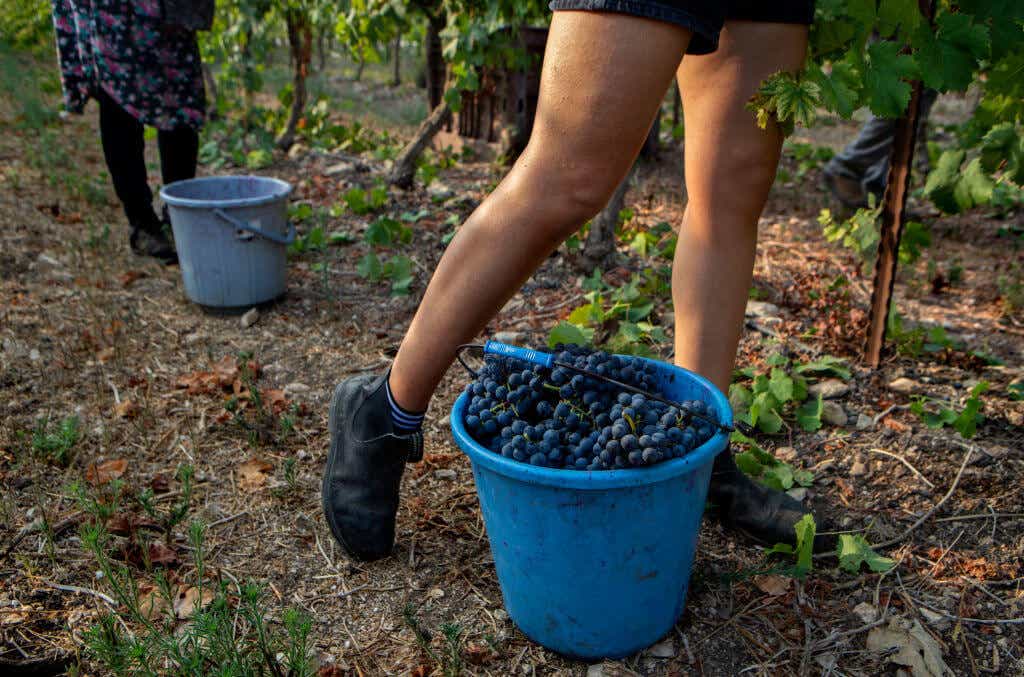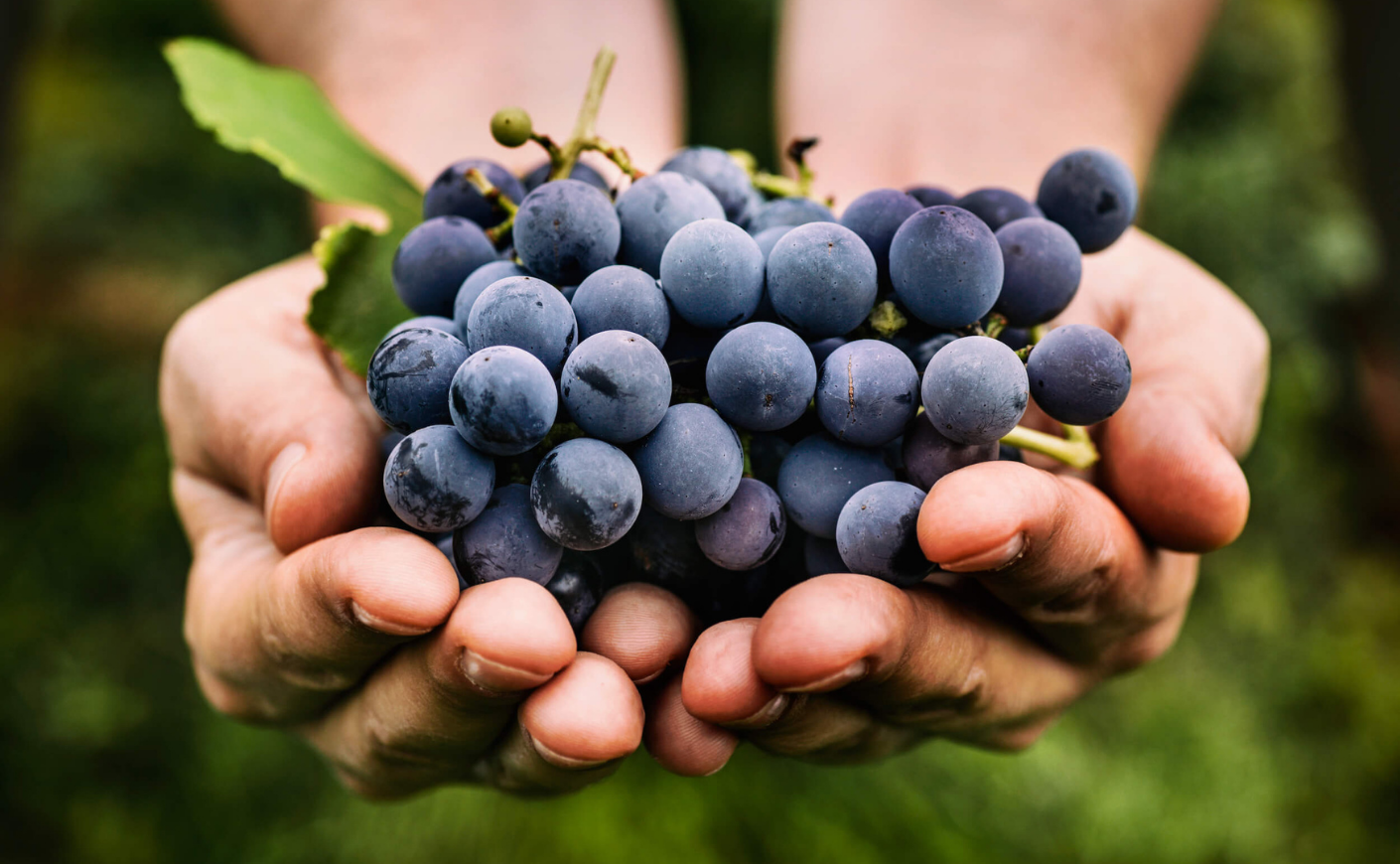Maybe you’ve seen a section pop up in your local wine store labeled “natural wine,” or you’ve heard a friend say they’re exclusively buying organic wines from now on. Or maybe you scrolled through Instagram and saw Cameron Diaz promoting her clean wine brand, Avaline. But what even is natural wine? Is it just a gimmick? And is it actually healthier for you?
Over the last decade, our culture has gotten much more aware — and concerned about — ingesting harmful ingredients. We care about what's used in the products we put on our bodies (hello, non-toxic beauty) and in our food (enter: the organic food movement). And the trend is spilling into the wines we drink. We don't want to, and shouldn't have to, drink wines with a bunch of added chemicals or sugars.
In fact, the U.S. legally allows up to 60 sketchy chemicals and additives to live in the bottles that get shelved at our local wine stores. These ingredients can also be found in watercolor paints, anti-foaming agents, and chalk. Yes, you read that correctly.
“Consumers are becoming more aware of what they're ingesting and that has spilled over into our choice of beverage,” says Tyler Brooks, a natural wine lover, and manager at The Natural Wine Company in Brooklyn, NY (which only sells wines made from organically grown grapes by small producers using fair farming methods). “I think farmers are starting to have to react to the consumer taking charge and saying, ‘No, no, I don't want that anymore. I want a better product.’”
If you're looking to make the switch to natural wine, here’s everything you need to know.

What’s the difference between “natural” wine and "regular" wine?
There's actually no set definition of what natural wine is — which adds to the confusion. That's because every country has their own set of rules, regulations, and clauses that define the meaning of "natural" wine. However, in general, natural wine consists of honest viniculture practices, and a “nothing added, nothing taken away” recipe for your wine, Brooks explains. “It’s as close to fermented grape juice as possible,” he says.
Additionally, “most natural wines should follow a few key ideas: using native yeasts, organic or biodynamic certification or practices, and maintaining an overall respect for the ecosystem of the vineyard,” says Brooks.
In the U.S., the Department of Agriculture (U.S.D.A.) does go through a rigorous process to ensure that a bottle of wine is, in fact, made with 100 percent organic grapes and minimal additives before giving it a Certified Organic certification. So if you see a U.S.D.A. Certified Organic label on a wine bottle, it's safe to assume the wine and farm have been thoroughly vetted.
What are the health benefits of drinking natural wine?
“Industrially made wines are very different and really quite toxic to the body,” says Brooks. That's because of those 60 chemicals and additives that are legally allowed to be in the wine, he explains.
Just as we pay more attention to what we're eating (organic and with less pesticides), “we’re finally having this moment where, as consumers, we’re putting those same standards and values on what we’re imbibing,” says Brooks. “Wines that are made in a more natural way produce a much cleaner product that I would rather put in my body, rather than something that's Photoshopped to look natural or to appear clean and healthier.”
And if you think you’re allergic to wine, that might not actually be the case. “Most of the time, it's not that you're allergic to the wine or the sulfites itself. You're allergic to some of the other chemical components, or maybe even the histamines or glycoproteins that can be found in wine," says Brooks. Natural wines usually have much less (or none) of those added components.
Will drinking natural wine give you less of a hangover?
"Even with natural wines, if you drink enough of it, you will get a hangover,” says Brooks. Fair point.
Even though there is no scientific evidence to suggest drinking natural wine will produce less of a hangover, "hangovers are usually associated with more poor-quality wines that have added chemicals and sugars," Brooks says. “Nine times of out 10, that $10 bottle of wine is going to have a lot of chemicals and extra pesticides. Maybe you come into a natural wine shop and decide to try a $40 bottle that’s made a little more fairly. I think you'd probably feel better drinking it.”
Do natural wines taste different?
There are plenty of natural wines on the market to suit any wine drinker's palette. “I don’t necessarily think that they taste better,” Brooks says. “I think it depends on the winemaker, what their focus is, and then as a consumer, what you’re looking for.”
Brooks suggests asking your local wine store for their favorite natural wine alternatives. "It's really important to have knowledgeable staff members at your wine store. For someone who's not in the wine world, it's extremely difficult to sort out the 'wannabe' natural wine producers from the real natural wine producers."









